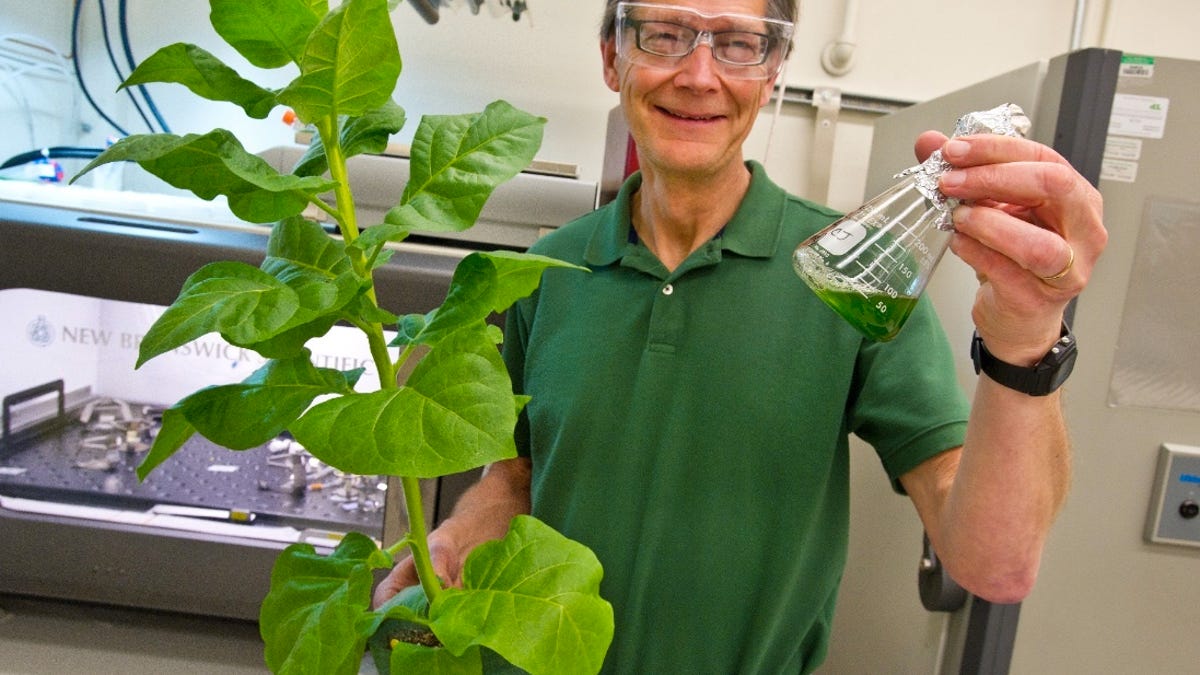Tobacco farms--a vehicle for growing fuel?
Aiming for a breakthrough in biofuel production, Berkeley National Lab project seeks to tweak tobacco plants with hydrocarbon-producing properties of algae and cyanobacteria.

What if tobacco could grow fuel in its leaves?
As far-fetched as that sounds, a group of scientists at Lawrence Berkeley National Lab is testing the limits of genetic engineering to make the widely grown tobacco plant a carrier for hydrocarbons.
Scientists will be at the ARPA-E Energy Innovation Summit this week to discuss the project, which received a $4.8 million grant over three years. The grant fits ARPA-E's mission of funding research that is high-risk but with a potential for a breakthrough.
Biofuels or biochemicals are typically made by growing plants and then converting that biomass into the desired product through a variety of methods. This project is part of the Plants Engineered to Produce Oil (PETRO) program at ARPA-E to have plants produce fuels directly, cutting out the costly steps of processing biomass after harvest.
The Lawrence Berkeley group's goal is to implant genes from other organisms, including algae and cyanobacteria, which encode for enzymes that produce hydrocarbons known as isoprenoids and alkanes. After harvesting, the tobacco leaves would be crushed down, the hydrocarbon molecules separated, and then converted into diesel, jet fuel, or gasoline, according to Berkeley.
Biotech engineers have been able to alter a plant's natural metabolic pathways to make a desired product before, but the Berkeley team is pursuing a few other techniques to optimize fuel production in tobacco. In addition to searching through many possible cyanobacteria species for hydrocarbon production, they are also seeking to isolate genes that will enhance tobacco's ability to absorb carbon dioxide for photosynthesis. That will increase the plant's ability to intake carbon dioxide, one of the main ingredients of its fuel, according to Berkeley.
The goal is to produce a version of tobacco where between 20 percent and 30 percent of its dry weight will be hydrocarbons. They are currently working with the Kentucky Tobacco Research on a pilot test and hope to have their first plant in about 18 months.

